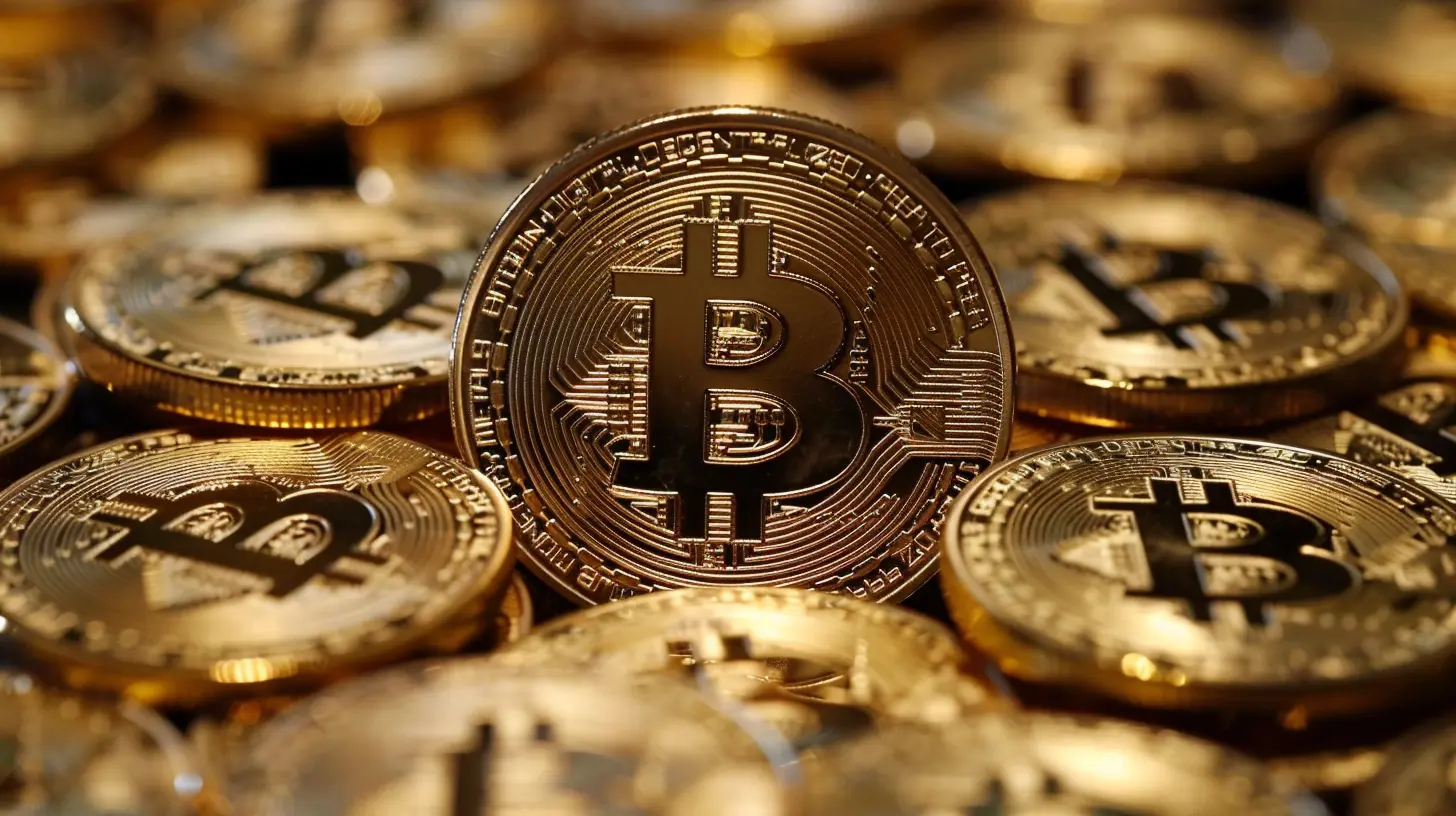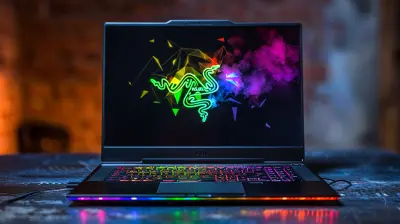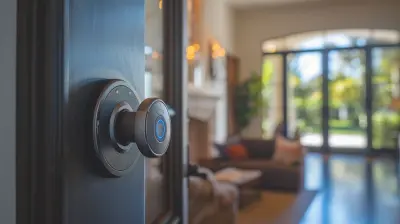How to Stay Safe While Using Cryptocurrency and Blockchain
14 November 2024
Cryptocurrency and blockchain technology are quickly becoming household names. From Bitcoin to Ethereum, these digital currencies are reshaping finance and the way we think about money. But with all the excitement comes a very crucial question: how do you stay safe while using cryptocurrency and blockchain?
If you’re diving into the world of digital currencies, you might feel like you’re navigating uncharted waters. Don’t worry—you’re not alone. In this guide, we’ll break down the best practices to keep your crypto transactions secure and help you avoid common pitfalls. Whether you’re a seasoned trader or just getting started, this article will provide you with actionable tips to protect yourself.
Table of Contents:
1. Understanding the Risks2. The Importance of Wallet Security
3. Using Strong, Unique Passwords
4. Enable Two-Factor Authentication (2FA)
5. Avoid Phishing Attacks
6. Beware of Scams and Fraudulent Schemes
7. Use Secure Networks
8. Keep Software and Firmware Updated
9. Know the Regulatory Landscape
10. Diversify Your Risk
11. Conclusion

Understanding the Risks
Before we get into the specifics, let's talk about why safety matters in the crypto world. Unlike traditional banking, where transactions can be tracked, reversed, or monitored by third parties, cryptocurrency operates on decentralized networks. That means once you lose your funds or fall victim to a scam, there’s no centralized authority to turn to for help. It’s like losing your wallet in a busy market—if you're not careful, it’s gone.Moreover, while blockchain technology itself is secure and nearly impossible to hack, the platforms, wallets, and exchanges that interact with it are not always bulletproof. Cybercriminals know this and are constantly on the lookout for vulnerabilities.
So, how do you protect yourself? Let’s dive into some actionable steps.
The Importance of Wallet Security
Think of your cryptocurrency wallet as your digital safe. It’s where all your coins and tokens live, and just like a physical wallet, it needs to be secure.Types of Wallets
- Hot Wallets: These are connected to the internet and are easy to access. They’re convenient for day-to-day transactions but are more vulnerable to hacks and malware. Think of it like carrying cash in your pocket—useful, but risky if you carry too much.- Cold Wallets: These are offline wallets, such as hardware wallets or paper wallets. They’re much safer from online threats but can be less convenient for frequent transactions. Cold wallets are like a vault—you wouldn’t use it for every small purchase, but it’s perfect for long-term storage.
Best Practices for Wallet Security:
1. Use a Cold Wallet for Large Amounts: Store the majority of your assets in a cold wallet to keep them safe from hacking attempts.2. Backup Your Wallet: Always have a backup of your wallet’s private keys or recovery phrase. Store this backup somewhere safe, preferably offline.
3. Never Share Your Private Key: Think of your private key like the PIN to your bank account. Share it with no one.
4. Use Multi-Signature Wallets: Some wallets allow for multiple signatories before a transaction can be processed. This adds an extra layer of security, especially for businesses or shared accounts.
Using Strong, Unique Passwords
It might sound basic, but using strong and unique passwords is one of the simplest yet most effective ways to protect your crypto assets. If you're reusing passwords across multiple sites, you're making it easy for hackers to gain access to your accounts.What Makes a Strong Password?
- Length: Aim for at least 12 characters.- Complexity: Use a mix of uppercase, lowercase letters, numbers, and special characters.
- Uniqueness: Don’t use the same password across multiple platforms. Each crypto exchange and wallet should have its own unique password.
To manage all these passwords, consider using a reliable password manager. It’s like having a digital vault for all your login credentials.
Enable Two-Factor Authentication (2FA)
Two-Factor Authentication (2FA) adds an additional layer of security to your accounts. Even if someone has your password, they won’t be able to access your account without the second factor—usually a code sent to your phone or generated by an app like Google Authenticator.Why You Should Use 2FA:
Think of it like adding a deadbolt to your front door. Even if someone picks the lock, they still can’t get in without the key to the deadbolt. Most reputable crypto platforms and wallets offer 2FA, and it’s a step you should never skip.Avoid Phishing Attacks
Phishing is when scammers try to trick you into revealing your personal information by posing as legitimate entities. In the crypto world, phishing attacks commonly occur via fake websites, email scams, or social media messages.How to Spot Phishing Attempts:
- Check the URL: Always double-check that the website you’re visiting is authentic. Scammers often create websites that look almost identical to legitimate exchanges but with slight spelling differences.- Look for HTTPS: Make sure the website is secure. Check for the padlock sign in the address bar and ensure the URL starts with "https://."
- Beware of Unsolicited Messages: Be cautious of any emails or messages asking for your private keys or other sensitive information. Legitimate companies will never ask for this.
Beware of Scams and Fraudulent Schemes
Cryptocurrency is still somewhat of a Wild West, and unfortunately, scams are rampant. From Ponzi schemes to pump-and-dump scams, there are countless ways that fraudsters try to exploit unsuspecting investors.Common Crypto Scams:
- Ponzi Schemes: These promise high returns with little risk but are unsustainable and collapse when new investors stop contributing.- Pump-and-Dump Schemes: These involve artificially inflating the price of a cryptocurrency and then selling off large amounts, causing the price to crash.
- Fake ICOs: Scammers promote fake Initial Coin Offerings (ICOs) to steal investors' money.
How to Avoid Scams:
- Do Your Research: Before investing in any project, thoroughly research the team behind it and check if it’s backed by reputable sources.- Be Skeptical of High Returns: If something sounds too good to be true, it probably is. Always approach high-return promises with caution.
Use Secure Networks
Public Wi-Fi might be convenient, but it’s also a hacker's playground. When using cryptocurrency, make sure you’re on a secure, private network. Public networks can be easily intercepted, exposing your private data.Tips for Secure Internet Usage:
- Use a Virtual Private Network (VPN): A VPN encrypts your internet connection, making it harder for hackers to intercept your data.- Avoid Public Wi-Fi for Crypto Transactions: Stick to your home or office network when making transactions.
Keep Software and Firmware Updated
Developers are constantly patching vulnerabilities and improving security features. Staying up-to-date with the latest software versions for your wallets, exchanges, and devices ensures that you’re protected against the latest threats.Why Updates Matter:
Think of software updates like locking your doors. If you don’t update, you’re effectively leaving the door open for cybercriminals to exploit known vulnerabilities.Know the Regulatory Landscape
Cryptocurrency regulations vary from country to country, and understanding the legal environment is crucial for staying safe. Some countries have strict regulations, while others have yet to implement any guidelines.Why It’s Important:
Staying informed about the legal landscape helps you avoid unintentional regulatory breaches, which could result in fines or frozen assets. It’s also a key factor in choosing which exchanges or wallets to trust—platforms that comply with regulations are generally safer and more transparent.Diversify Your Risk
In the world of crypto, diversification isn’t just about spreading your investments; it's also about spreading your risk. Keeping all your assets on one exchange or in a single wallet puts you at greater risk of losing everything in a hack or scam.How to Diversify Safely:
- Use Multiple Wallets: Don’t keep all your crypto in one place. Spread it across multiple wallets, some hot and some cold.- Use Different Exchanges: If you trade frequently, consider using multiple exchanges so that if one is compromised, you don’t lose access to all your funds.
Conclusion
Cryptocurrency and blockchain technology offer incredible opportunities, but they come with significant risks. By following the tips outlined in this article—securing your wallet, using strong passwords, enabling 2FA, avoiding phishing scams, and staying informed about regulations—you can minimize your risk and protect your assets.Remember, in the crypto world, you are your own bank. With great power comes great responsibility, and knowing how to stay safe is your first line of defense.
all images in this post were generated using AI tools
Category:
CybersecurityAuthor:

Gabriel Sullivan
Discussion
rate this article
22 comments
Celeste Carter
Navigating cryptocurrency and blockchain can be daunting, but prioritizing safety empowers you. Remember, you’re not alone in this journey. Stay informed, be vigilant, and connect with your community for support.
March 25, 2025 at 10:01 PM

Gabriel Sullivan
Thank you for your thoughtful comment! Prioritizing safety and staying connected with the community are key to navigating the world of cryptocurrency. Your insights are much appreciated!
Nolan Vance
Great tips! Prioritizing security measures is essential for safe cryptocurrency and blockchain usage. Stay vigilant!
February 5, 2025 at 8:40 PM

Gabriel Sullivan
Thank you! I'm glad you found the tips helpful. Staying vigilant is key to ensuring safe cryptocurrency use!
Kendra McNaughton
Prioritize security by using strong passwords, enabling two-factor authentication, and staying informed about evolving threats in the cryptocurrency space.
January 29, 2025 at 8:01 PM

Gabriel Sullivan
Absolutely! Prioritizing security is essential. Strong passwords, two-factor authentication, and staying updated on threats are key steps to protect your cryptocurrency assets.
Elwynn McDermott
Awareness is key; security measures are essential.
January 23, 2025 at 1:13 PM

Gabriel Sullivan
Absolutely! Awareness and robust security measures are crucial for protecting yourself in the crypto space. Stay informed and vigilant!
Sophia Reilly
Prioritize strong passwords, utilize two-factor authentication, and stay informed about scams and phishing tactics to enhance your cryptocurrency safety.
January 19, 2025 at 4:53 AM

Gabriel Sullivan
Thank you for the great tips! Prioritizing strong passwords and two-factor authentication is essential for enhancing security in the crypto space. Staying informed about scams is equally important.
Nell Moore
This article provides valuable insights into safeguarding your cryptocurrency investments. Balancing security practices with digital asset opportunities is crucial for both new and experienced users in the evolving blockchain landscape.
January 15, 2025 at 8:18 PM

Gabriel Sullivan
Thank you for your feedback! I'm glad you found the insights valuable. Balancing security and opportunity is indeed essential for everyone in the crypto space.
Gabriel Snow
In the wild west of crypto, safety isn't just a precaution—it's a necessity. Prioritize robust security practices, question every link, and remember: in the blockchain world, the strongest wallet is one filled with knowledge. Stay savvy, stay safe!
January 12, 2025 at 12:32 PM

Gabriel Sullivan
Absolutely! Prioritizing security and staying informed are key to navigating the crypto landscape safely. Thank you for the reminder!
Ella Blevins
Great article! Staying informed and cautious is key in the evolving world of cryptocurrency. Remember, knowledge is your best defense—so keep learning and safeguard your investments wisely.
January 7, 2025 at 4:27 AM

Gabriel Sullivan
Thank you for your thoughtful comment! Staying informed is indeed crucial for safe cryptocurrency use. Let's continue to learn and protect our investments together!
Jessica Wallace
In navigating the digital landscape of cryptocurrency and blockchain, we must embrace a dual responsibility—pursuing innovation while safeguarding our assets. Security transcends mere technical measures; it demands a cultural shift towards vigilance and education. Only by fostering awareness and adopting best practices can we truly harness the transformative potential of these technologies.
January 2, 2025 at 3:55 AM

Gabriel Sullivan
Absolutely! Balancing innovation with a strong security culture is key to safely navigating the cryptocurrency landscape. Education and awareness are essential to protect our assets and unlock the full potential of these technologies.
Raegan McKay
Embracing cryptocurrency and blockchain opens up a world of possibilities, but safety is key! By following best practices and staying informed, we can navigate this exciting landscape confidently. Let’s empower ourselves with knowledge and tools, ensuring a secure and bright future in the digital economy. Happy exploring!
December 29, 2024 at 3:32 AM

Gabriel Sullivan
Thank you for highlighting the importance of safety in the crypto space! Empowering ourselves with knowledge and best practices is indeed crucial for a secure experience. Happy exploring!
Cassandra Pope
Secure your crypto like it’s top secret nachos!
December 23, 2024 at 8:52 PM

Gabriel Sullivan
Great analogy! Just like top secret nachos, securing your crypto is all about protecting what matters most. Stay vigilant!
Astoria McGarvey
Great tips! Staying safe in the crypto world is essential. Love how these strategies empower users to explore blockchain with confidence! 🎉🚀
December 18, 2024 at 7:34 PM

Gabriel Sullivan
Thank you! I'm glad you found the tips helpful—staying safe is crucial as we explore the exciting world of crypto! 🚀
Ronan McGrath
Remember, in the crypto world, a strong password is like a good lock—essential for keeping your digital treasure secure!
December 7, 2024 at 5:09 AM

Gabriel Sullivan
Absolutely! A strong password is your first line of defense in protecting your crypto assets. Stay secure!
Carson McCoy
Staying safe in the cryptocurrency and blockchain landscape is non-negotiable. Prioritize strong passwords, enable two-factor authentication, and conduct thorough research before investing. Remember, safeguarding your assets is just as crucial as the investment itself. Embrace best practices and navigate this space with confidence.
November 29, 2024 at 7:38 PM

Gabriel Sullivan
Absolutely! Prioritizing security measures like strong passwords and two-factor authentication is essential for protecting your assets in the crypto space. Your emphasis on research and best practices is spot-on!
Silas Diaz
Cryptocurrency and blockchain offer exciting opportunities but come with inherent risks. Employing strong passwords, enabling two-factor authentication, and staying updated on security practices are crucial steps for safeguarding your assets. Additionally, always verify sources and educate yourself about potential scams to enhance your protection.
November 26, 2024 at 4:41 AM

Gabriel Sullivan
Thank you for highlighting these essential safety measures! Prioritizing security and education is key to navigating the crypto landscape safely.
Zora McDowell
This article provides essential insights into safeguarding one’s cryptocurrency investments. However, it could delve deeper into the psychological aspects of fraud, emphasizing the importance of critical thinking and skepticism—skills as vital as technical knowledge in this volatile landscape.
November 22, 2024 at 9:05 PM

Gabriel Sullivan
Thank you for your insightful comment! I appreciate your suggestion to explore the psychological aspects of fraud further and the importance of critical thinking—I'll consider incorporating that in future updates.
Whitney Wells
This article offers valuable insights into navigating the complex world of cryptocurrency safely! I'm particularly intrigued by the emphasis on security measures—can we explore more about the evolving challenges in this space?
November 21, 2024 at 7:44 PM

Gabriel Sullivan
Thank you for your interest! I’ll definitely consider expanding on evolving challenges in cybersecurity within the cryptocurrency space in future articles. Stay tuned!
Destiny McBride
In the digital realm, let wisdom be your guide, Guard your keys, and never let trust slide. Through shadows and light, stay vigilant and bold, In crypto's embrace, let safety unfold.
November 20, 2024 at 7:55 PM

Gabriel Sullivan
Thank you! Wise words to live by in the crypto space—vigilance and caution are key to staying safe.
Xylo Sawyer
Great insights! Staying informed and cautious is key in the crypto space. Your tips will definitely help many navigate safely.
November 18, 2024 at 12:30 PM

Gabriel Sullivan
Thank you! I'm glad you found the tips helpful. Staying informed is essential in the crypto space!
Allison Patel
Staying safe in the crypto space requires vigilance. Prioritize security measures like hardware wallets, strong passwords, and two-factor authentication. Always verify sources and remain informed about emerging threats.
November 16, 2024 at 11:51 AM

Gabriel Sullivan
Thank you for highlighting these crucial safety tips! Staying informed and implementing strong security measures is essential for navigating the crypto space safely.
Otis Reed
Thank you for this insightful article! It's crucial to stay informed about safety in the crypto space. Your tips are practical and much appreciated for both newcomers and seasoned users alike.
November 16, 2024 at 11:38 AM

Gabriel Sullivan
Thank you for your kind words! I'm glad you found the tips helpful. Staying safe in the crypto space is essential for everyone.
Angie McAlister
Navigating the crypto jungle? Remember, even the most secure wallets can be pickpocketed. Stay sharp, verify sources, and keep your digital treasures under lock and code!
November 14, 2024 at 6:20 PM

Gabriel Sullivan
Absolutely! Security is key in the crypto space—always verify before you trust. Stay safe!
MORE POSTS

How Autonomous Robots are Changing the Consumer Gadget Space

How Augmented Reality is Reinventing the Travel Industry

Exploring the Role of Tech in Revolutionizing Education

How IoT Devices are Shaping the Future of Home Security

Exploring the Role of AI in Data Analytics
How to Sync Your Fitness Tracker with Other Health Apps

Choosing the Best Laptop for Graphic Design Work

The Environmental Impact of IoT: Can It Help Combat Climate Change?

The Best Smart Locks for Securing Your Home

Tech Conferences That Are Defining the Future of Work
Fitness Trackers for Hikers: Features You Can’t Live Without

Lightweight Laptops That Pack Serious Power for On-the-Go Professionals

AR Glasses: The Next Big Thing in Wearable Tech?